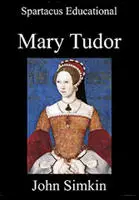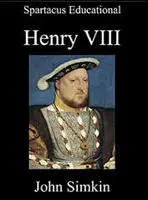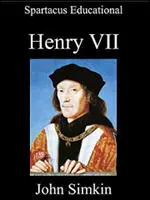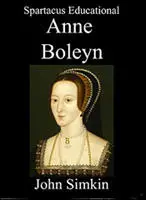Thomas Kyd
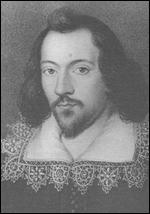
Thomas Kyd, the son of Francis Kyd and his wife, Anna, was baptized on 6th November 1558 at the church of St Mary Woolnoth in London. His father was warden of the Company of Scriveners.
Thomas entered Merchant Taylors' School in 1565, and may have remained a pupil there under Richard Mulcaster until 1575. As his biographer, J. R. Mulryne, pointed out: "The school curriculum included Latin, French, and Italian, a good grounding for the future translator. At Merchant Taylors', plays in both Latin and English formed part of the boys' training, and Kyd is likely to have taken part in these exercises." (1)
Little is known of his early life but in the 1580s he wrote the hugely popular play, The Spanish Tragedy. It has been claimed that the play established a new genre in English theatre, the revenge tragedy. He is also known for some Italian translations. By 1591 he was sharing a room with the dramatist, Christopher Marlowe. (2)
Thomas Kyd and Atheism
According to Paul Hyland, Kyd and Marlowe were member of "a collection of thinkers, tightly knit or loosely grouped, whose passion was to explore the world and the mind". The group included the geographers, Richard Hakluyt and Robert Hues, the astrologer, Thomas Harriot, the mathematicians, Thomas Allen and Walter Warner, and the writers George Chapman and Matthew Roydon. The men would either meet at the homes of Walter Raleigh, Edward de Vere, 17th Earl of Oxford, and Henry Percy, 9th Earl of Northumberland. (3)
It has been claimed that these men were atheists. In reality they were sceptics (someone who doubts the authenticity of accepted beliefs). For example, at various times the Earl of Oxford was quoted as saying the Bible was "only... to hold men in obedience, and was man's device" and "that the blessed virgin made a fault... and that Joseph was a wittol (cuckold). Oxford did not believe in heaven and hell and declared "that after this life we should be as we had never been and the rest was devised but to make us afraid like babes and children of our shadows". (4)
| Spartacus E-Books (Price £0.99 / $1.50) | ||||||
|---|---|---|---|---|---|---|
Robert Persons, a Catholic priest, published Responsio. Published first in Latin, over the next two years it went through eight editions in four languages. It included an attack on Raleigh's group. "There is a flourishing and well known school of Atheism which Sir Walter Raleigh runs in his house, with a certain necromancer as teacher." It then went on to predict that some day an edict might appear in the Queen's name in which belief in God would be denied. Persons claimed that this information came from testimony from "such as live with him, and others that see their lives". He also alleged that William Cecil and other Privy Councillors lived as "mere atheists, and laughing at other men's simplicity in that behalf". (5)
It has been argued that Walter Raleigh was "prone to expressions of rational scepticism, a potentially dangerous trait given the company he sometimes kept and his inclination towards discussion and debate". He was also known to be in contact with other freethinkers such as Marlowe, Harriot and Hakluyt but Robert Persons was unable to provide any hard evidence against Raleigh. (6)
Mathew Lyons, the author of The Favourite: Raleigh and His Queen (2011) has suggested: "Raleigh was not an atheist as we understand the term: his was a muscular unadorned faith, intense in its privacy and unbreachable in its force... His kind of atheism was, in fact, viewed with perhaps even more distrust and disgust by the Protestant establishment than recusancy, and their horror of such indifference was shared across the religious divide." (7)
Christopher Marlowe
It has been argued that while at university Christopher Marlowe developed an interest in atheism. Marlowe wrote that "the first beginning of Religion was only to keep men in awe" and his advice "not to be afraid of bugbears and goblins" came from his reading of "Ovid, Lucretius, Polybius and Livy". (8) In one of his plays, Jew of Malta, Marlowe wrote: "I count religion but a childish toy". (9)
Richard Baines, a government spy, later reported that Marlowe was definitely an atheist. He claimed that he definitely heard Marlowe say that "Christ was a bastard and his mother dishonest". He also said that Marlowe once remarked that "if he were put to write a new religion, he would undertake both a more excellent and admirable method". Finally, he stated that Jesus Christ was a homosexual and "St John the Evangelist was bedfellow to Christ... and that he used him as the sinners of Sodoma". (10)
On 11th May 1593 the Privy Council instructed its officers to seek out the source of certain "libels", or inflammatory writings, directed against foreigners resident in London. During the investigation Kyd's rooms were searched and the officers found, not what they were looking for, but material considered equally incriminating. It was claimed that they found material suggesting he was an atheist. Kyd was arrested and imprisoned. (11)
Kyd was tortured and he confessed that he was a member of an atheist group that included Christopher Marlowe, Thomas Harriot, Walter Warner and Matthew Roydon. However, he did not name the three men who were considered the leaders of the group, Walter Raleigh, Edward de Vere, 17th Earl of Oxford, and Henry Percy, 9th Earl of Northumberland. (12)
From his prison cell Kyd wrote to the lord keeper, Sir John Puckering, pleading his innocence. In one of his letters, he explained that the incriminating documents were not his but Marlowe's. In a second letter Kyd wrote more fully about "Marlowe's notoriously subversive views, accusing his fellow playwright of being blasphemous, disorderly, holding treasonous opinions, being an irreligious reprobate". (13) In his confession Kyd claimed that "it was his (Marlowe) custom… to jest at the divine scriptures and strive in argument to frustrate and confute what hath been spoken or written by prophets and such holy men". He also suggested that Marlowe had talked about Jesus Christ and St. John as bedfellows. (14)
On 20th May 1593 Christopher Marlowe was arrested and charged with blasphemy and treason. Richard Baines, a government spy, provided information to the Privy Council about his activities. (15) Another witness, Richard Cholmeley, who had been working as a spy for Robert Cecil, claimed that Marlowe "is able to show more sound reasons for atheism than any divine in England is able to give to prove divinity, and that Marlowe told him, he hath read the atheist lecture to Sir Walter Raleigh and others". (16)
Christopher Marlowe was allowed bail, on condition that he report daily to the Star Chamber. On the 30th May, 1593, Marlowe was drinking in a tavern in Deptford with Ingram Frizer, Nicholas Skeres and Robert Poley. During an argument Frizer stabbed Marlowe above the eyeball. Marlowe died soon afterwards.
An Inquest was held on 1st June. William Danby, Coroner for the Queen's Household, presided over the Inquest. In doing so, he acted illegally, since the country coroner was required to be on hand, according to statutory law. (38) According to the report by Danby, "Marlowe suddenly and of malice... unsheathed the dagger... and there maliciously gave the aforesaid Ingram Fritzer two wounds on his head of the length of two inches and of the depth of a quarter of an inch." Danby claimed that Frizer, "in fear of being slain and sitting on the aforesaid bench between Nicholas Skeres and Robert Poley so that he was not able to withdraw in any way, in his own defence and to save his life... gave the aforesaid Christopher Marlowe then and there a mortal wound above his right eye of the depth of two inches." (17)
Thomas Kyd was released from prison but he was in poor health as a result of being tortured and he died soon afterwards. He was buried at St Mary Colechurch in London on 15th August 1594. (18)
Primary Sources
(1) J. R. Mulryne, Thomas Kyd : Oxford Dictionary of National Biography (2004-2014)
The most substantial information about Kyd's later life concerns his serious brush with authority in May 1593. On 11 May the privy council instructed its officers to seek out the source of certain ‘libels’, or inflammatory writings, directed against foreigners resident in London. During the investigation Kyd's rooms were searched and the officers found, not what they were looking for, but material considered equally incriminating. This was a three-page manuscript consisting, according to an endorsement by one of Kyd's accusers.
Student Activities
Henry VIII (Answer Commentary)
Henry VII: A Wise or Wicked Ruler? (Answer Commentary)
Henry VIII: Catherine of Aragon or Anne Boleyn?
Was Henry VIII's son, Henry FitzRoy, murdered?
Hans Holbein and Henry VIII (Answer Commentary)
The Marriage of Prince Arthur and Catherine of Aragon (Answer Commentary)
Henry VIII and Anne of Cleves (Answer Commentary)
Was Queen Catherine Howard guilty of treason? (Answer Commentary)
Anne Boleyn - Religious Reformer (Answer Commentary)
Did Anne Boleyn have six fingers on her right hand? A Study in Catholic Propaganda (Answer Commentary)
Why were women hostile to Henry VIII's marriage to Anne Boleyn? (Answer Commentary)
Catherine Parr and Women's Rights (Answer Commentary)
Women, Politics and Henry VIII (Answer Commentary)
Historians and Novelists on Thomas Cromwell (Answer Commentary)
Martin Luther and Thomas Müntzer (Answer Commentary)
Martin Luther and Hitler's Anti-Semitism (Answer Commentary)
Martin Luther and the Reformation (Answer Commentary)
Mary Tudor and Heretics (Answer Commentary)
Joan Bocher - Anabaptist (Answer Commentary)
Anne Askew – Burnt at the Stake (Answer Commentary)
Elizabeth Barton and Henry VIII (Answer Commentary)
Execution of Margaret Cheyney (Answer Commentary)
Robert Aske (Answer Commentary)
Dissolution of the Monasteries (Answer Commentary)
Pilgrimage of Grace (Answer Commentary)
Poverty in Tudor England (Answer Commentary)
Why did Queen Elizabeth not get married? (Answer Commentary)
Francis Walsingham - Codes & Codebreaking (Answer Commentary)
Sir Thomas More: Saint or Sinner? (Answer Commentary)
Hans Holbein's Art and Religious Propaganda (Answer Commentary)
1517 May Day Riots: How do historians know what happened? (Answer Commentary)

